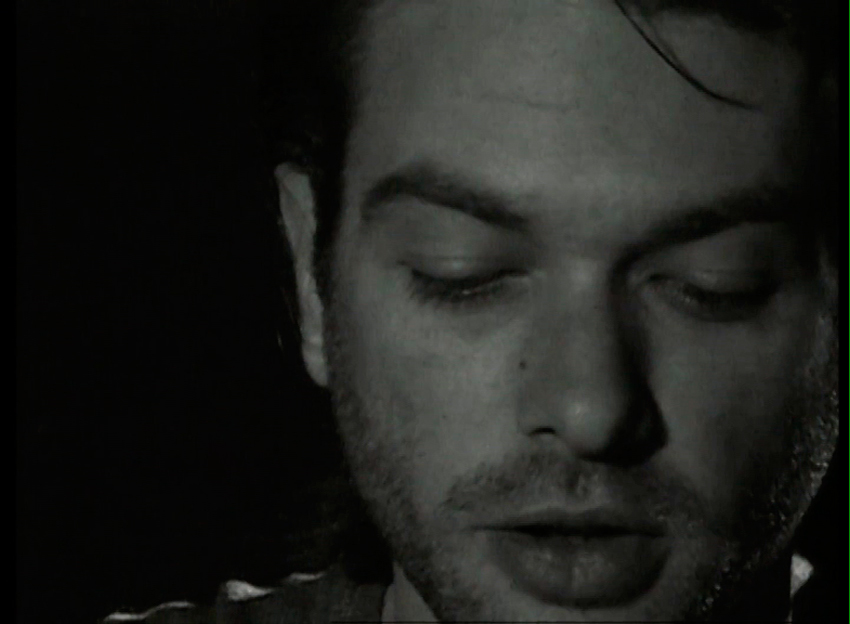Autobiographies, like the first times, are almost always accompanied by the evident grace of innocence.
And even from the imposture.
What is said does not matter so much as anger over what is left unsaid, over what is kept silent.
The desire to say everything, once and for all, comes face to face with the fear of forgetting perhaps the only thing that matters.
Qui je suis
(
Who am I
or
Poet from the Ashes
) is both
an autobiographical text and the debut of a director.
And it is there, at the impossible crossroads of all imbalances, a perfect film in each of its imperfections both for what is seen for what it hides.
Everything is there and it is as modest as it is obscene.
And so.
The Cineteca
saw
fit
to release in Spain last Wednesday almost in silence the directorial debut, always sought and never found, by Frenchman Bertrand Bonello.
He did it within the cycle dedicated to Pasolini on the occasion of the 60 years of
Accattone
, his first film.
The next day 23 this jewel dated in 1996 will be seen again. If the first time was the premiere, the next will be the last.
It is the adaptation of the short story (barely 30 pages) signed by Pier Paolo Pasolini in which the poet recounts his entire life in a single ray of pain.
The text was written in 1966 excited and perhaps caused by the pain of an ulcer.
It is fiery prose that respects nothing but your desire for everything and nothing.
Pure fury, pure pain, pure Pasolini and even pure Bonello.
The director of films such as
Nocturna
or
Zombi Child
recounts
not by chance committed to the end of childhood and, therefore, the innocence that both the text itself and Pasolini have accompanied him throughout his life.
"That book has been on my desk for a long time," he says modestly by email.
"He wrote thousands of pages, but this poem contains it entirely," he adds.
He says that everything was the result of a chance with the appearance of destiny.
After the cancellation of the filming that occupied him at that time, he and his family decided to rent a 16 mm camera and a car.
The rest was to follow the trace of what Pasolini vomited from Bologna to Viterbo.
All at once, with the impatience that always accompanies the first few times.
"I don't know if I would be able to do the same today. You only have innocence once. A first time only happens once," he reflects.
Actor Laurent Sauvage in 'Qui Je Suis'CINETECA
The film is both by Pasolini and Bonello.
Or maybe neither of them.
One actor,
Laurent Sauvage
, reads the text literally, word for word.
On the screen, the images of a journey through a lit Italy that is also a declaration of principles.
I am you, each frame seems to say.
French is Italian.
The images of the filmmaker who then premiered
Pajaritos y pajarracos
are mixed with local scenes that seem to be taken from Pasolini's own subconscious.
And in the middle, Savage on stage reads the text, word by word.
The voice
of the father's fascist past
is lamented
,
of the humiliation suffered by the mother, of the Communist Party from which he was expelled for a sexual scandal, in short, of everything regrettable.
The Italian rejects his status as Italian.
And the poet also rejects his status as a poet to claim for himself the novelty of cinema, more philosophical, declaiming.
It is a film where what is said counts as much as the anger on which each sentence rides.
It is a starter movie to end everything out of date.
"For me, Pasolini is a key figure. And he was everything throughout my youth. His political thought was unique, full of contradictions and vocationally complex; a rare and precious mixture of supreme intelligence and poetry," adds Bonello in a clarification whose unique The purpose is to add darkness to what is already dark.
Go to the wound.
"It's funny," thinks the Frenchman, "but, unlike many other teachers and great filmmakers,
Pasolini has no heirs
. His cinema was revolutionary at the time and now it would shock even more. Today's cinema has become too bourgeois to receive to an heir of Pasolini ".
Who knows if in these last words Bonello himself offers himself as his successor.
The truth is that at least once, the first of them, Bonello was Pasolini with the same evidence that, contemplating the film, Pasolini wrote his autobiography to be read, lived, filmed and, above all, taken away by Bonello.
"Cinema is becoming an object of consumption. For this reason, cinema, the one that Pasolini imagined and the only one possible,
has to be an act of resistance," he
finally says.
Seeing things for the first time and forever.
With Pasolini.
With Bonello.
On Tuesday 23 at the Cineteca.
According to the criteria of The Trust Project
Know more
movie theater
culture
CineVictoria Abril apologizes if it has "offended people who have lost their loved ones"
Berlin Film FestivalÁlvaro Gurrea, the Spaniard from the Berlinale who learned to make films to be able to speak
March 5 'Stripe and the Last Dragon', the new from Disney, and the other movie premieres of the week
See links of interest
Holidays 2021
Athletic Club - Eibar
Crotone - Bologna
1. FC Cologne - Borussia Dortmund
Eintracht Frankfurt - 1. FC Union Berlin
Celta de Vigo - Real Madrid, live

